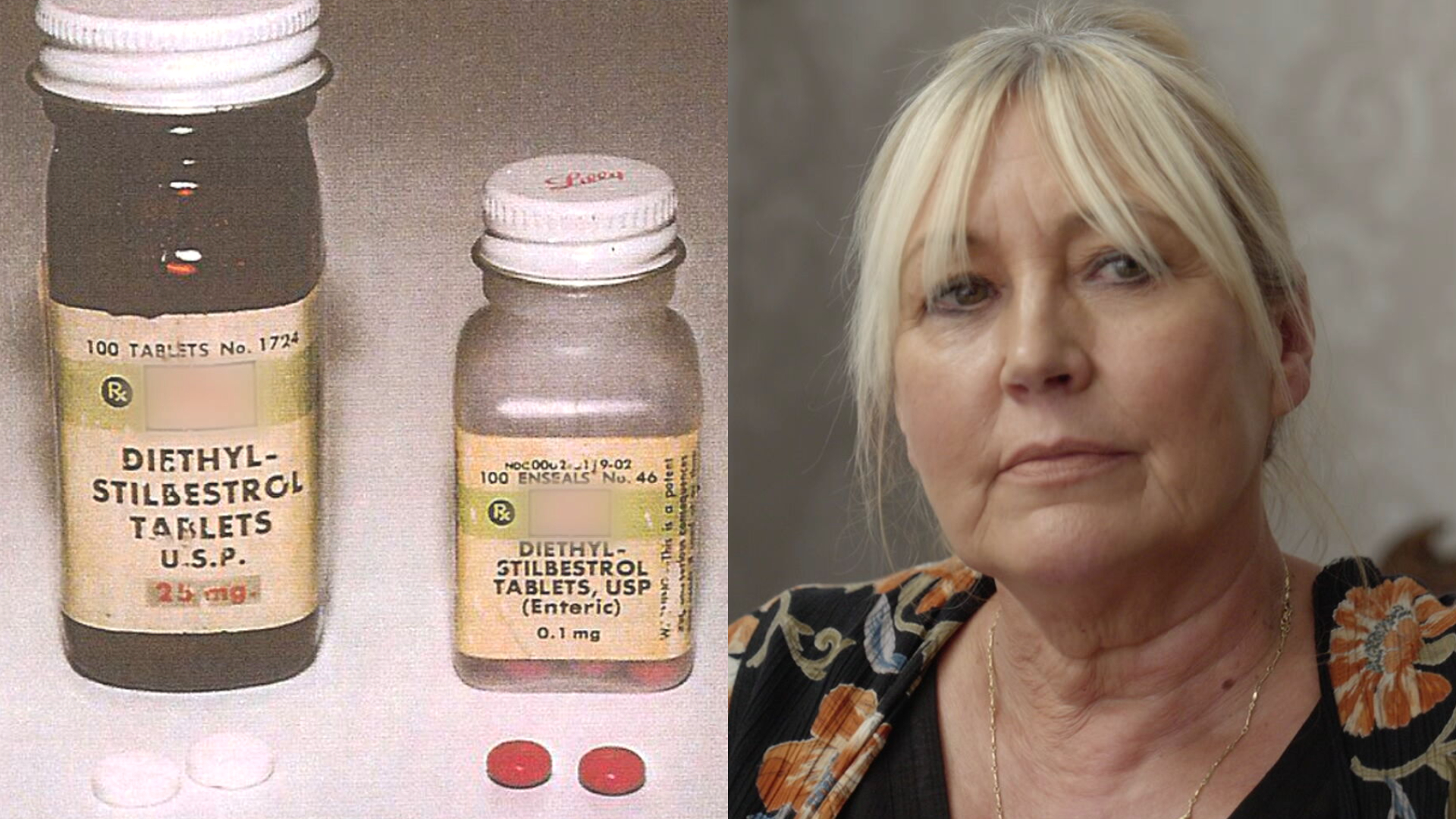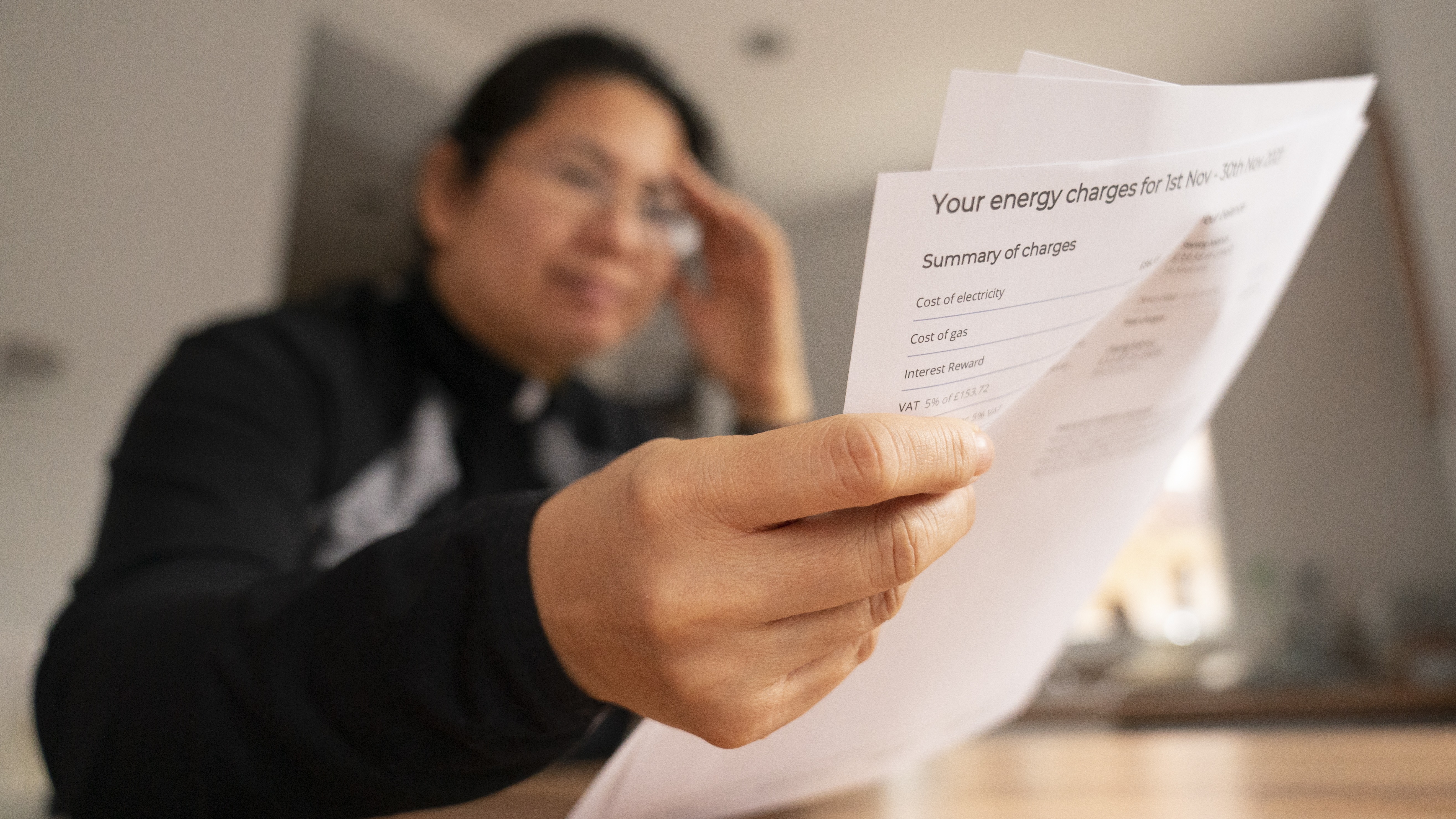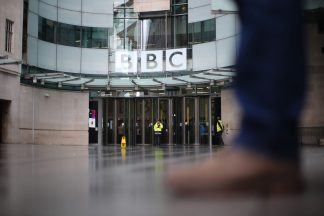An ITV News investigation has been uncovering the medical scandal of the drug DES and the ongoing fight for justice, as Social Affairs Correspondent Sarah Corker and Senior Producer Lottie Kilraine report
An ITV News investigation has found shocking new evidence that health authorities failed to ban a dangerous pregnancy drug prescribed on the NHS, despite mounting evidence of its links to cancer.
The anti-miscarriage drug Diethlystilbestrol, commonly known as DES, was given to hundreds of thousands of women between the 1940s and 1980s, some of whom have developed rare cancers and had the harm “passed down generations”.
The Health Secretary has now admitted that the “state failed” to take regulatory action and said he was exploring what “effective redress and remedy” could look like.
Wes Streeting told the ITV Tonight programme: “I absolutely accept there will be women suffering today as a result of those past failures. We are looking at the evidence base for extending screening, that work is ongoing.”
But following this interview a Department for Health spokesperson told us that although the government is looking at the issue of DES, it is not considering screening.
In a troubling new development, the UK Medicines and Healthcare Regulatory Agency (MHRA) has now admitted that it misled the public for more than a decade.
The medicines regulator falsely claimed that the drug was banned for use in pre-menopausal women in 1973, a statement which our reporting has exposed was inaccurate, leading to an apology from the MHRA for “this error and for any distress caused to patients and the public”.
ITV’s Tonight programme Toxic Legacy: Our Hidden Drug Scandal, exploring one of the biggest medical disasters in NHS history and the ongoing fight for justice and compensation, broadcasts on Thursday at 8.30pm on ITV1 and ITVX.
The MHRA falsely claimed that the drug was banned for use in pre-menopausal women in 1973, which our reporting has exposed was inaccurate, as Social Affairs Correspondent Sarah Corker explains
For one family from Worcester, the legacy of DES has been devastating with the harmful effects of the drug passed down the generations and they believe they were poisoned in the womb.
Sisters Michelle Taylor, 63, and Christine Holt, 71, believe that the drug is to blame for a lifetime of health problems after their mother Sylvia Bennett was prescribed DES following a string of miscarriages in the 1960s.
Just weeks after her death aged 55 in 1977, the sisters received a phone call from a gynaecologist in the Midlands who was researching the effects of the drug on the female babies exposed in the womb, known as DES daughters.
Years of painful procedures and “traumatic” invasive examinations followed.
“This in itself was very traumatic for me as I was a 15-year-old child grieving for my mother,” Michelle told ITV Tonight. “I passed out with the pain and was recalled to be examined under anaesthetic.”
For years the sisters were examined every six months, then annually, as they were found to be “suffering the effects of exposure”, and were monitored for the rare vaginal and cervical cancer, clear cell adenocarcinoma (CCA), linked to DES.
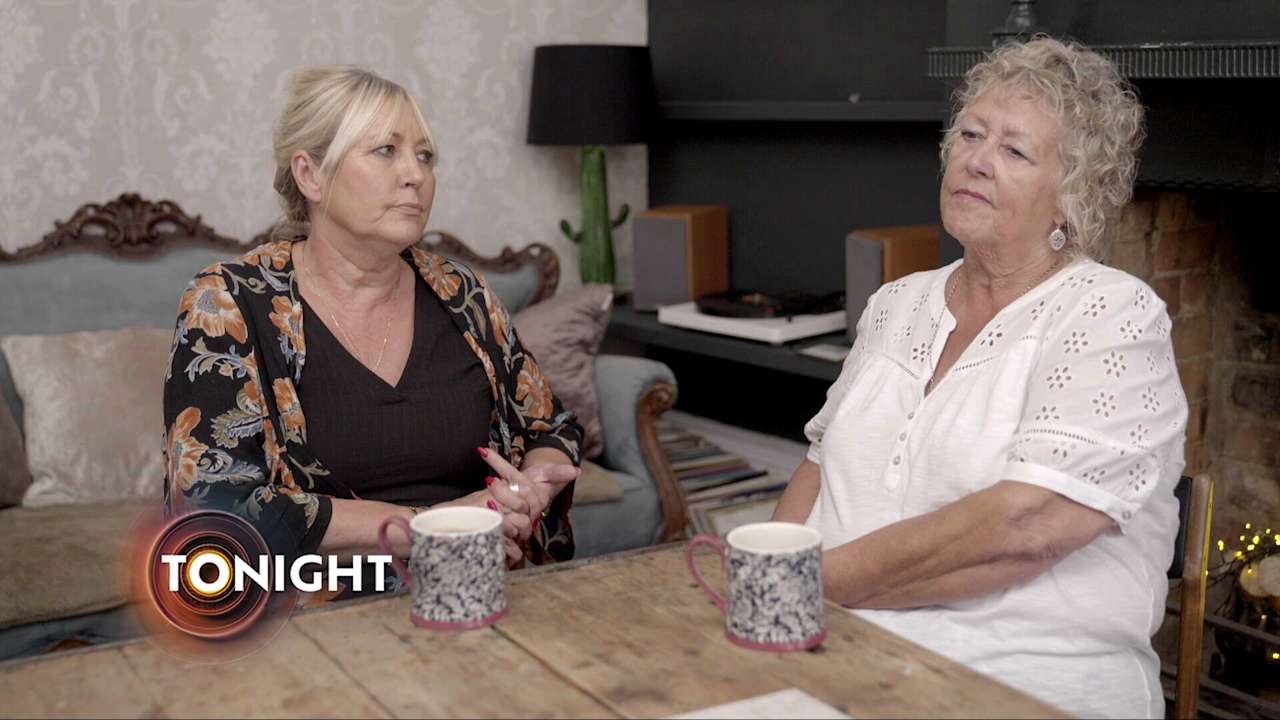
Both Christine and Michelle have suffered a lifetime of complications, with years of hospital admissions and near-fatal pregnancies, resulting in long periods of depression caused by the trauma of DES exposure.
At the age of 24, Michelle was told she would be unable to have children and began a “gruelling” 13 years of fertility treatment before her final attempt was successful over a decade later aged 37.
Meanwhile, Christine was told she had pre-cancerous cells in her early twenties.
After years of trying to get pregnant, she eventually had a successful pregnancy but nearly died with her baby in childbirth and eventually had a full hysterectomy aged 32.
“It’s just all been one round of hospitals and depression and not feeling normal like every other woman,” she added.
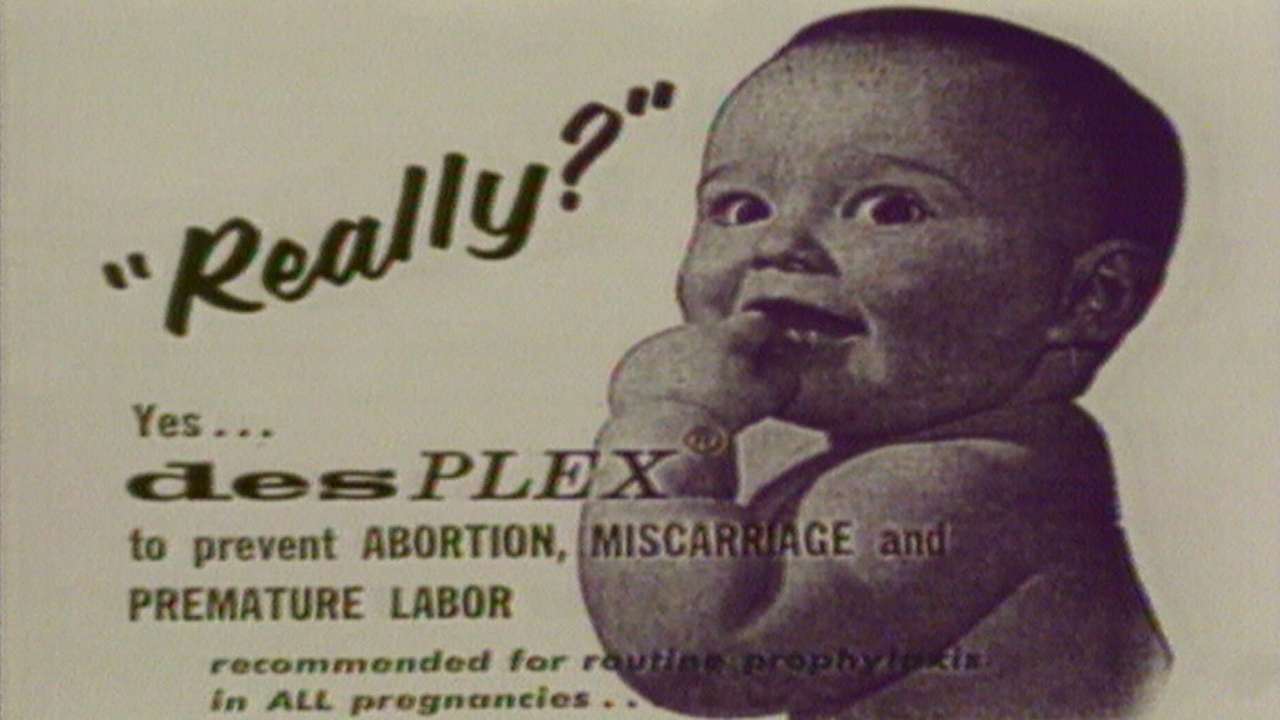
Medicines watchdog misled public over DES
The UK medicines regulator, the MHRA had claimed that doctors were advised to stop using DES in 1973, but following our reporting they have now for the first time admitted that never happened and apologised for “inaccurate” statements.
Dozens of women have contacted ITV News saying they’d been given DES on the NHS nearly a decade after 1973.
Our team then scoured through hundreds of pages of public health records at the National Archives and British Library.
We found no evidence that regulatory action was ever taken to withdraw the drug, and in fact that doctors downplayed the risks.
The MHRA has now apologised for “this error and for any distress caused to patients and the public”.
A spokesperson told ITV News: “In our earlier statement, we stated that the Committee on Medicines Safety (CSM) wrote to all doctors in 1973 to advise against the use of in pre-menopausal women.
“This information was taken from historic departmental responses that we have now found to be inaccurate.”
Social Affairs Correspondent Sarah Corker travelled to the Netherlands with the ITV Tonight programme to find out more about the Dutch approach to DES screenings and redress
“We value the investigative work done by yourself and your outlet to put those harmed by the historic use of Diethylstilbestrol front and centre of this issue, and our sympathies are with them,” they added.
ITV News has also discovered that these erroneous statements have been issued by the MHRA and the Department of Health since 2012.
What this shows it the health authorities failed to act, despite the mounting evidence of harm.
The public record and Hansard, the official parliamentary transcription service, is now being corrected.
Our investigation also discovered evidence that up to 600 women may have never been told they were part of a medical trial in the 1950s where they were exposed to DES.
ITV News has found documents written by one of the doctors involved in the scientific study, which was carried out by Dr Swyer and Law in 1954, in Medical Research Council files held at the National Archives.
The files state that many of the women simply took the DES tablets as part of their routine care and didn’t know they were part of a medical trial.
Today, many of the children of these women will be completely unaware that they were exposed to DES and may have an increased risk of a rare type of vaginal cancer and fertility issues.
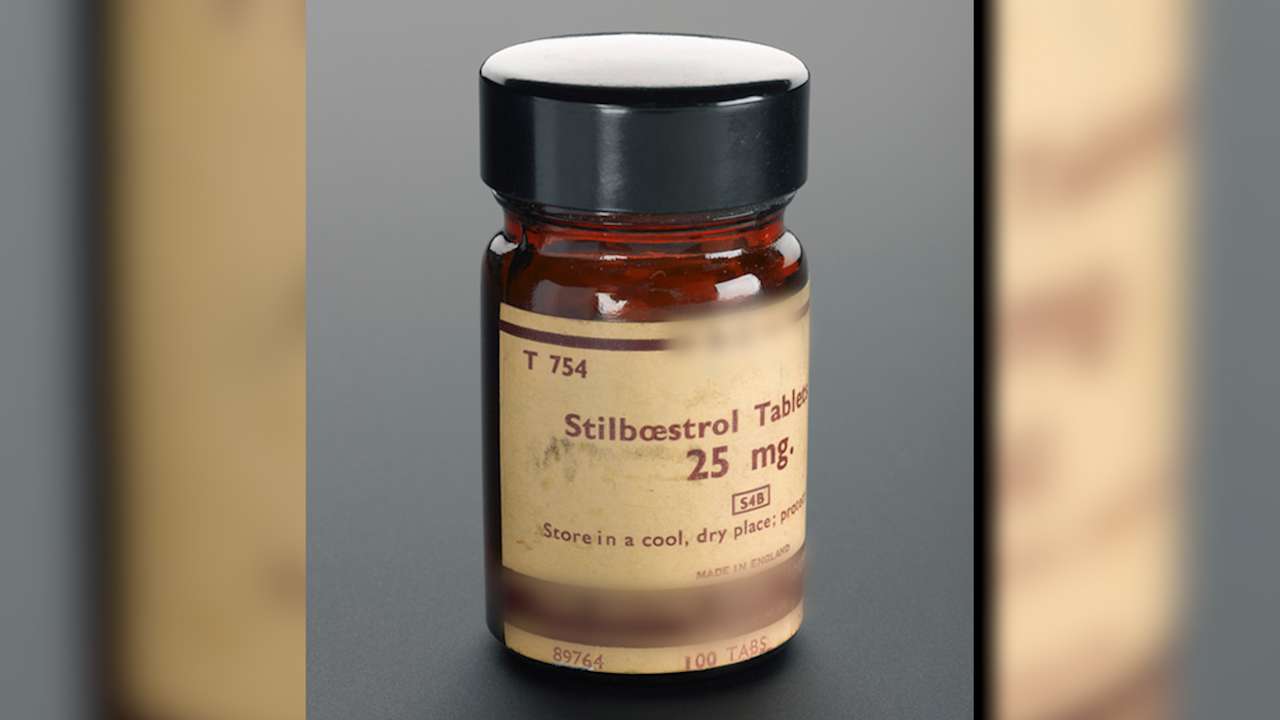
What is the pregnancy drug DES?
- Diethlystilbestrol, known and DES or Stilbestrol, was prescribed on the NHS to prevent miscarriage and to stop breast milk production. It was invented in Britain in 1939 using public funding.
- Research suggests that women given the drug after birth, known as DES mothers, may have a 30% higher risk of breast cancer. If the drug was taken during pregnancy, and in many cases used to prevent miscarriage, the harm could have been passed down through the generations.
- The female babies exposed in the womb, known as DES daughters, have about 40 times the risk of developing a rare cancer clear cell adenocarcinoma of the vagina and cervix compared to unexposed women. This type of cancer is still rare, even in DES daughters.
- DES daughters are at an increased risk reproductive abnormalities such as infertility, ectopic pregnancy and premature birth.
- Studies on DES sons are much more limited, but research suggests an increased risk of genital abnormalities and infertilities.
For families like Michelle and Christine’s, they now live in fear as their own daughters are experiencing abnormal cervical issues that could be linked to DES.
Recent scientific studies suggest that granddaughters could also be at a higher risk of conditions including infertility, and that more research is needed to determine whether there is a higher cancer risk too.
Michelle’s daughter Issy, who is 25, said she has felt “full of dread” since her first smear test came back unclear years earlier.
“It’s just constant worry and anxiety,” Issy told ITV Tonight. “I took those worries to my GP and it was a waste of time, they didn’t know what DES was, so it was humiliating being sat there trying to explain.”
“Someone needs to be held accountable, for what they’ve done to our whole family,” she added.
Michelle’s daughter Issy told the ITV Tonight programme that she has felt ‘full of dread’ since her first smear test came back unclear years earlier
Over the years, the family have watched in dismay as people exposed to DES in other countries, including the US, France, and the Netherlands, have won compensation in recognition of the damage caused by the drug.
“It’s been frustrating, especially knowing that it’s recognised in other countries where they’ve got together with the drugs companies and the government to pay compensation too,” Christine said. “But our own government and our own country has done nothing.”
A spokesperson for the Department for Health said: “Our sympathies are with anyone harmed by the historic use of Diethylstilboestrol. The Secretary of State has been clear he will look seriously at these allegations.”
But following our interview with the Health Secretary, a spokesperson for his department told us that although the government is looking at the issue of DES, it is not considering screening.
Watch ITV’s Tonight programme Toxic Legacy: Our Hidden Drug Scandal at 8.30pm on September 11, on ITV1 and ITVX.
Information or support about the issues raised in this report can be found online:
- Information on Diethylstilbestrol (DES) Exposure and Cancer
- Legal firm Broudie Jackson Canter has set up a campaign page for DES exposed people
- There is information on cervical cancer and breast cancer on the NHS website
- If you think you need medical help right now, please contact your GP or visit 111 online, or call 999 in an emergency.
If you or anyone you know has been affected by this issue or has a story to share, you can get in touch by emailing: socialaffairs@itv.com
Follow STV News on WhatsApp
Scan the QR code on your mobile device for all the latest news from around the country


